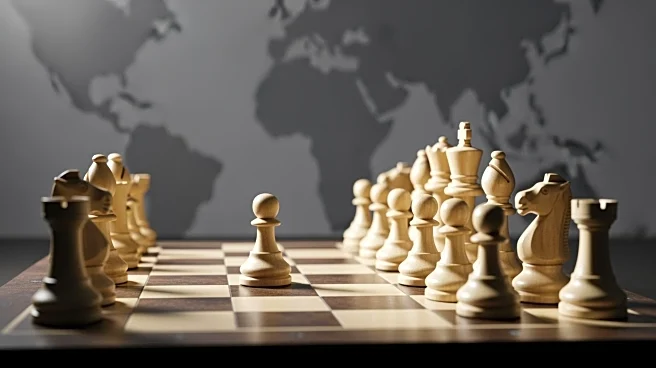What's Happening?
President Trump stated that Ukraine 'could still win' its war with Russia, although he expressed doubt about the likelihood of such an outcome. He noted the animosity between the leaders of Ukraine and
Russia as a complicating factor in achieving peace. Trump's remarks come after a meeting with Ukrainian President Volodymyr Zelensky at the U.N. General Assembly, where he previously suggested Ukraine could reclaim lost territory. Trump has urged Russia to cease attacks on Ukrainian civilians and mentioned ongoing efforts to negotiate a peace deal. The Kremlin has rejected calls for a ceasefire, preferring a full peace deal and demanding more territorial concessions from Ukraine.
Why It's Important?
Trump's comments reflect a shift in his stance on the Ukraine-Russia conflict, which has significant implications for U.S. foreign policy and international relations. The conflict has reshaped global alliances and remains Europe's deadliest in decades. Trump's engagement in peace negotiations could influence the geopolitical landscape, affecting U.S.-Russia relations and the stability of Eastern Europe. The outcome of these negotiations could impact U.S. diplomatic strategies and military aid decisions, with potential consequences for global security and economic interests.
What's Next?
Trump plans to meet with Russian President Vladimir Putin in the coming weeks, while U.S. Secretary of State Marco Rubio is set to host a high-level Russian delegation. These meetings aim to advance a resolution to the conflict, although details remain unspecified. The ongoing dialogue between U.S. and Russian officials could lead to new diplomatic initiatives or agreements, potentially altering the course of the war and influencing future U.S. foreign policy decisions.









